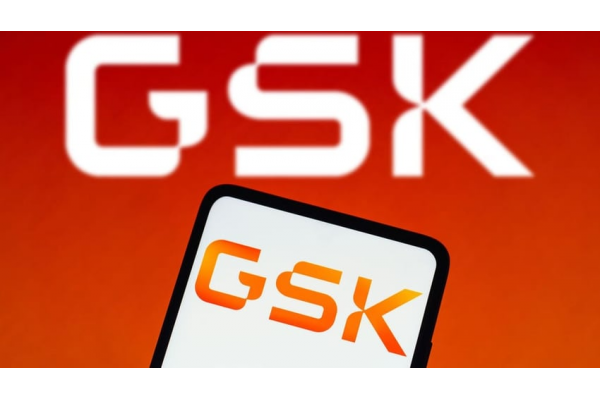GSK beats Merck to first PD-1 approval in newly diagnosed endometrial cancer
August 2, 2023
Source: drugdu
 295
295

GSK has won the first FDA approval for an immunotherapy to treat certain patients with newly diagnosed endometrial cancer. But the industry-first go-ahead is tempered with a label limitation.
The FDA has cleared Jemperli as an add-on to chemotherapy for patients with primary advanced or recurrent endometrial cancer, GSK said Monday. To be eligible for the therapy, the patient’s tumor must be mismatch repair deficient (dMMR) or microsatellite instability-high (MSI-H), both terms that describe a type of genetic abormality.
The approval comes nearly two months ahead of schedule and puts Jemperli ahead of Merck & Co.’s rival PD-1 inhibitor Keytruda, which is also gunning for the first-line endometrial cancer use. But the dMMR/MSI-H restriction comes as a bit of a disappointment for the GSK drug.
By GSK’s estimate, about 15% to 20% of the roughly 60,000 new cases of endometrial cancer each year in the U.S. will be diagnosed at an advanced stage. And about 20% to 29% of all endometrial cancers are dMMR/MSI-H.
Before Monday’s announcement, GSK in June disclosed that the FDA had granted a priority review for its application for Jemperli in first-line endometrial cancer—but only in dMMR/MSI-H disease. That narrow review came in contrast with Jemperli showing a benefit in a broader patient population.
In the phase 3 RUBY trial, Jemperli’s addition to chemotherapy reduced the risk of progression or death by 72% among patients with dMMR/MSI-H tumors. But in those with mismatch repair-proficient (pMMR) or microsatellite-stable (MSS) tumors, Jemperli also showed a progression-free survival improvement of 24%.
“GSK accelerated submission in the dMMR/MSI-H patient population,” where Jemperli demonstrated the strongest treatment effect, a GSK spokesperson told Fierce Pharma. The RUBY trial is still following patients for more overall survival data, and the company is discussing a potential label expansion with the FDA, the spokesperson said.
In recent years, the FDA has put more emphasis on overall survival data for new cancer drugs. In some cases, the agency has narrowed cancer indications—either because of immature overall survival data or after longer-term life extension data showed potential harm in certain patient subgroups.
At the first interim analysis of overall survival in the RUBY trial, Jemperli reduced the risk of death by 70% in dMMR/MSI-H patients. Data from the pMMR/MSS population also favored the GSK drug with a 27% reduction in the risk of death. But, clearly, results so far from the pMMR/MSS group weren’t mature enough to embolden GSK or convince the FDA.
Before Monday’s approval, Jemperli has been allowed as a second-line treatment for dMMR/MSI-H endometrial cancer. In the first six months of 2023, the drug brought in 36 million pounds of sales. And GSK has been counting on a first-line approval as an inflection point for the PD-1 latecomer.
Meanwhile, a second part of the RUBY trial is testing a regimen that adds GSK’s PARP inhibitor Zejula to Jemperli following a cocktail of Jemperli and chemo in first-line endometrial cancer. That readout is expected in the fist half of 2024, according to GSK’s second-quarter update last week.
Back in May, AstraZeneca said a regimen of its PD-L1 inhibitor Imfinzi and chemo, both by itself and used on top of the Merck-partnered PARP inhibitor Lynparza, showed a progression-free survival edge over chemo alone in front-line endometrial cancer.
GSK hustled for the dMMR/MSI-H indication as rival Merck recently touted a first-line win for its PD-1 king Keytruda. The phase 3 NRG-GY018 trial showed impressive tumor progression data for the combination of Keytruda and chemotherapy at an interim analysis. Like Jemperli, benefits were observed for both dMMR/MSI-H patients and those without that biomarker in separate subgroup analyses. However, the Keytruda trial has an even shorter follow-up than Jemperli’s RUBY.
In a statement to Fierce Pharma, a Merck spokesperson said the company is discussing results from the NRG-GY018 trial with the FDA but declined to comment further.
Reference:https://www.fiercepharma.com/pharma/gsk-beats-merck-first-pd-1-approval-newly-diagnosed-endometrial-cancer
By editorRead more on
- The first subject has been dosed in the Phase I clinical trial of Yuandong Bio’s EP-0210 monoclonal antibody injection. February 10, 2026
- Clinical trial of recombinant herpes zoster ZFA01 adjuvant vaccine (CHO cells) approved February 10, 2026
- Heyu Pharmaceuticals’ FGFR4 inhibitor ipagoglottinib has received Fast Track designation from the FDA for the treatment of advanced HCC patients with FGF19 overexpression who have been treated with ICIs and mTKIs. February 10, 2026
- Sanofi’s “Rilzabrutinib” has been recognized as a Breakthrough Therapy in the United States and an Orphan Drug in Japan, and has applied for marketing approval in China. February 10, 2026
- Domestically developed blockbuster ADC approved for new indication February 10, 2026
your submission has already been received.
OK
Subscribe
Please enter a valid Email address!
Submit
The most relevant industry news & insight will be sent to you every two weeks.



